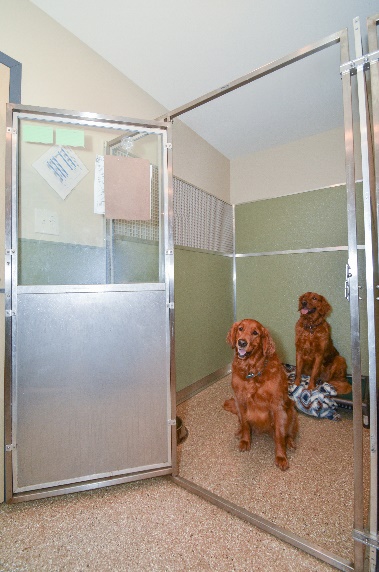Crate training your pup
By Michaela Tallant, ZimmVet Professional Pet Groomer

A lot of the time puppies will struggle with crate training. Sometimes it has to do with a general fear or anxiety of being left alone. Or it can be caused by not enjoying their “safe space.” Here are some tips to help your pup be more relaxed in their crate.
Picking the right crate.
You’ll want to make sure the crate you pick is the right size for your pup. Often times if you’re starting them younger, you can still buy a crate that will fit them as an adult, but use an insert to make the crate smaller. This will help them feel more cozy and secure. If puppies have too much space, they will potty or become more anxious in their crates.
Introducing your pup to the crate.
Put the crate somewhere in the house that is commonly used. Then you can choose a bed, soft blanket, or towel to put in the crate. Use treats and toys to help encourage your pup into the crate. Make sure the door stays open; we don’t want it to hit them on the way in or out. Allow your pup to continue to go in and out of their crate as they please, while you’re relaxing at home.
Feeding in or around the crate.
Start feeding your pup in or around their crate. This will create a positive association with their crate. You should still leave the door of the crate open, until your pup seems to be fully relaxed while in their crate. As they become more comfortable in the crate, you can start leaving them in their crate for short periods of time after eating.
Crating for longer periods of time.
Once your pup appears to be comfortable with being in their crate for feeding, you can start extending the time your pup’s in their crate. It’s a good idea to pick a command word such as “Kennel up”. This way your pup has a consistent que for this action. Make sure to give your pup a small treat when you’re crating them. This will show them they are rewarded for “Kenneling up” when asked to.
Ideally if you give your pup time to adjust and appreciate the “safe space” they gain in their crate, they won’t have problems, though this is not full proof and there may still be struggles with teaching your pup to enjoy their crate. Make sure to be patient and work at their pace and continue positive reinforcement.


